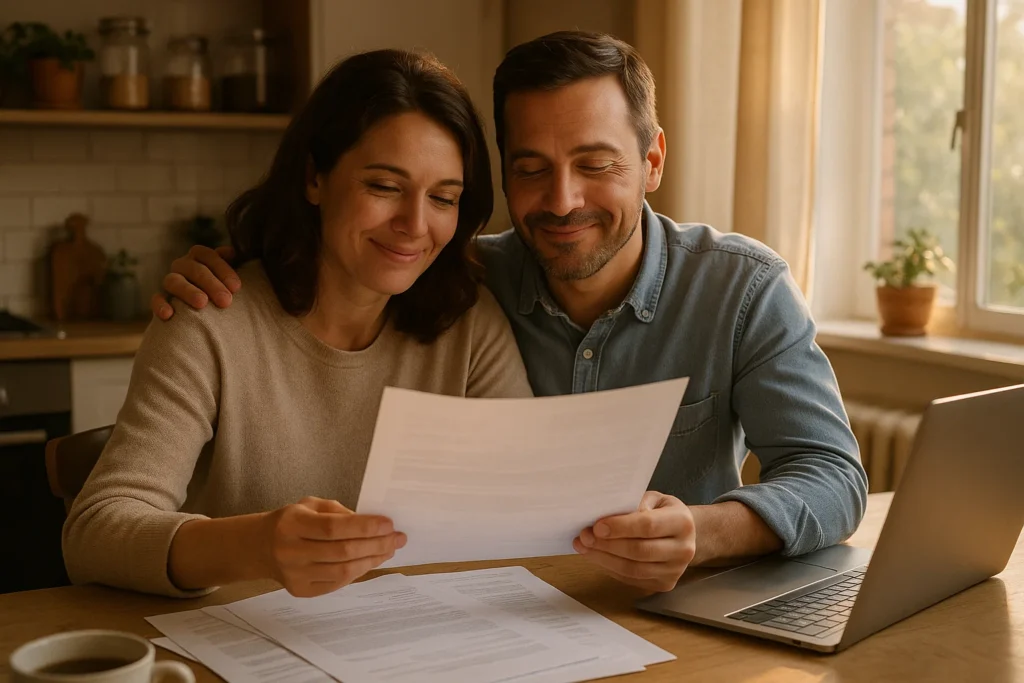If you’re struggling with unsecured debts, an Individual Voluntary Arrangement (IVA) may be the lifeline you’re looking for. An IVA simplifies repayments and is so much easier to manage than a combination of debts from various creditors. An IVA consolidates debts, leaving you with just one affordable monthly payment. The arrangement reduces your monthly debt repayment responsibility and provides you with a clear end date.
One of the often-misunderstood aspects of an IVA is its impact on legal action and the use of bailiffs. This is vital information that can stand you in good stead should you face legal action for the recovery of debt.
In this article, we explain what an IVA can and cannot do, how it changes creditor behaviours, and the protections it offers during setup and once it is in operation after acceptance. We’ll also discuss what you can do if you’re already facing bailiffs or court action.

What is an IVA?
An IVA is a formal contract between you and your unsecured creditors. An Insolvency Practitioner (IP) prepares the IVA proposal and then manages the payment of the agreed monthly sums. The IP also distributes payments to the creditors in line with the agreement. The IVA agreement usually runs over a fixed period of five or six years and appears on the debt insolvency register for the same length of time. Any debt left unpaid at the end of the term is typically written off.
Creditors vote to accept or reject the proposal. If the creditors owed 75% of the voting debt value agree to the proposal, all your creditors are bound by the agreement.
Once the proposal is accepted, interest and charges stop, and you are now responsible for a single monthly payment. The agreement prevents creditors from taking any further enforcement action for debt recovery unless you renege on your contractual obligations.
Creditors retain full legal rights until the majority approves the IVA proposal. They can issue statutory demands, commence County Court Proceedings (CCJs), and seek warrants for bailiffs or High Court Enforcement Officers (HCEOs). These rights only expire once the IVA is approved.
Many creditors will agree to stop enforcement for debt recovery when you inform them that you’re organising an IVA and have an IP. The pause in proceedings, however, is up to their discretion. You must act quickly if court proceedings or judgements for debt recovery are already in place.
Benefits of an IVA for debt recovery
For many people, an IVA is a clear choice. It brings many benefits, not least of which is peace of mind. You’ll find the benefits listed below:
- A legal breathing space: An IVA is a legally binding agreement once your creditors accept it. Creditors included in the IVA cannot continue with or start debt enforcement if you keep your side of the agreement. This means you’re protected from bailiffs and further court action.
- One affordable monthly payment: One of the primary outcomes of an IVA is debt consolidation. The result is that you make one monthly payment to the IP based on realistic affordability. Budgeting is simplified, eliminating multiple calls and demands from creditors.
- Predictable end date: With an IVA, you have a clear timescale until you are debt-free.
- Stops interest and fees: Creditors included in the IVA usually stop charging interest and default fees at the start of the arrangement. This means a higher portion of your payments goes to reducing the principal debt.
- Debt reduction potential: Any remaining qualifying unsecured debt included in the arrangement may be written off at the end of the IVA term.
- Professional management: A licensed Insolvency Practitioner handles negotiations, creditor communications and distributions. You have a professional representing you with creditors and enforcement agents. You no longer have to deal with these awkward issues yourself.
- Protection for your home: An IVA doesn’t remove mortgages or secured creditors’ rights, but it can prevent unsecured creditor debt recovery actions that might otherwise escalate with undesirable outcomes. If you own property, the IVA typically allows you to retain your home while repaying your unsecured debts.
- Bankruptcy avoidance: An IVA offers an alternative to bankruptcy, with its more severe consequences. You have more control over your assets, and you receive a manageable payment plan that factors in your income and living expenses.
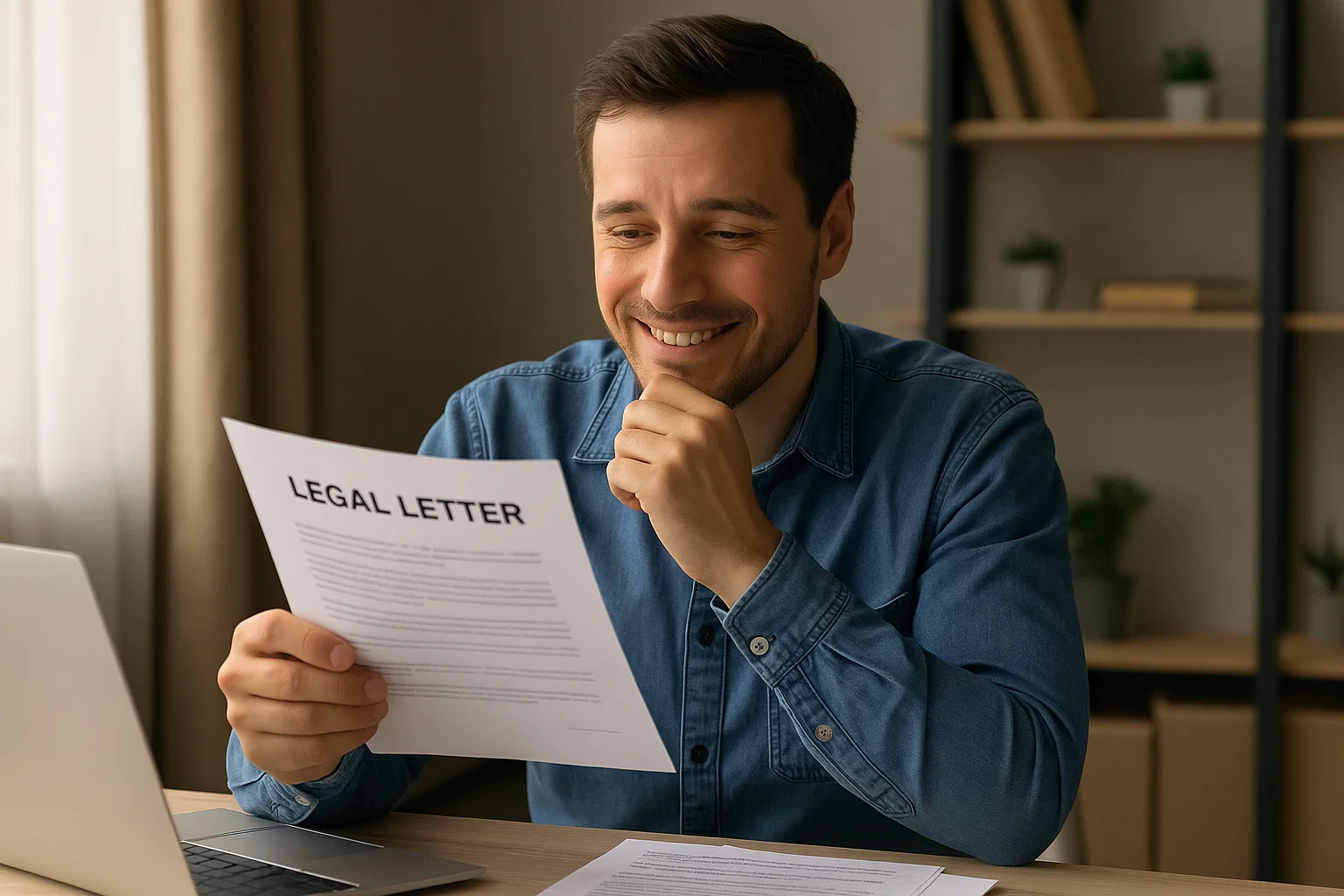
Can an IVA Stop Legal Action Once It Has Started?
An IVA proposal won’t automatically halt court action, which is already underway. It is, therefore, in your best interest to contact the creditor immediately to request a pause and inform them that you are applying for an IVA. Some creditors will agree to postpone enforcement when they receive evidence of a pending IVA.
You can apply to the court for an adjournment or permission to defend if you can show an imminent insolvency proposal.
Once the creditors accept the IVA, it becomes binding and ends enforcement for the included debts.
The IVA Impacts on CCJ
If a County Court Judgment (CCJ) is already in motion, you can include it in the IVA. A CCJ doesn’t stop you from proposing an IVA. However, if debt recovery enforcement, like bailiffs or charging orders, has started, a majority agreement to an IVA proposal will halt any further creditor actions for debts included in the contract. Any creditor’s attempts at enforcement after acceptance of the IVA can be challenged as a breach of the contract.
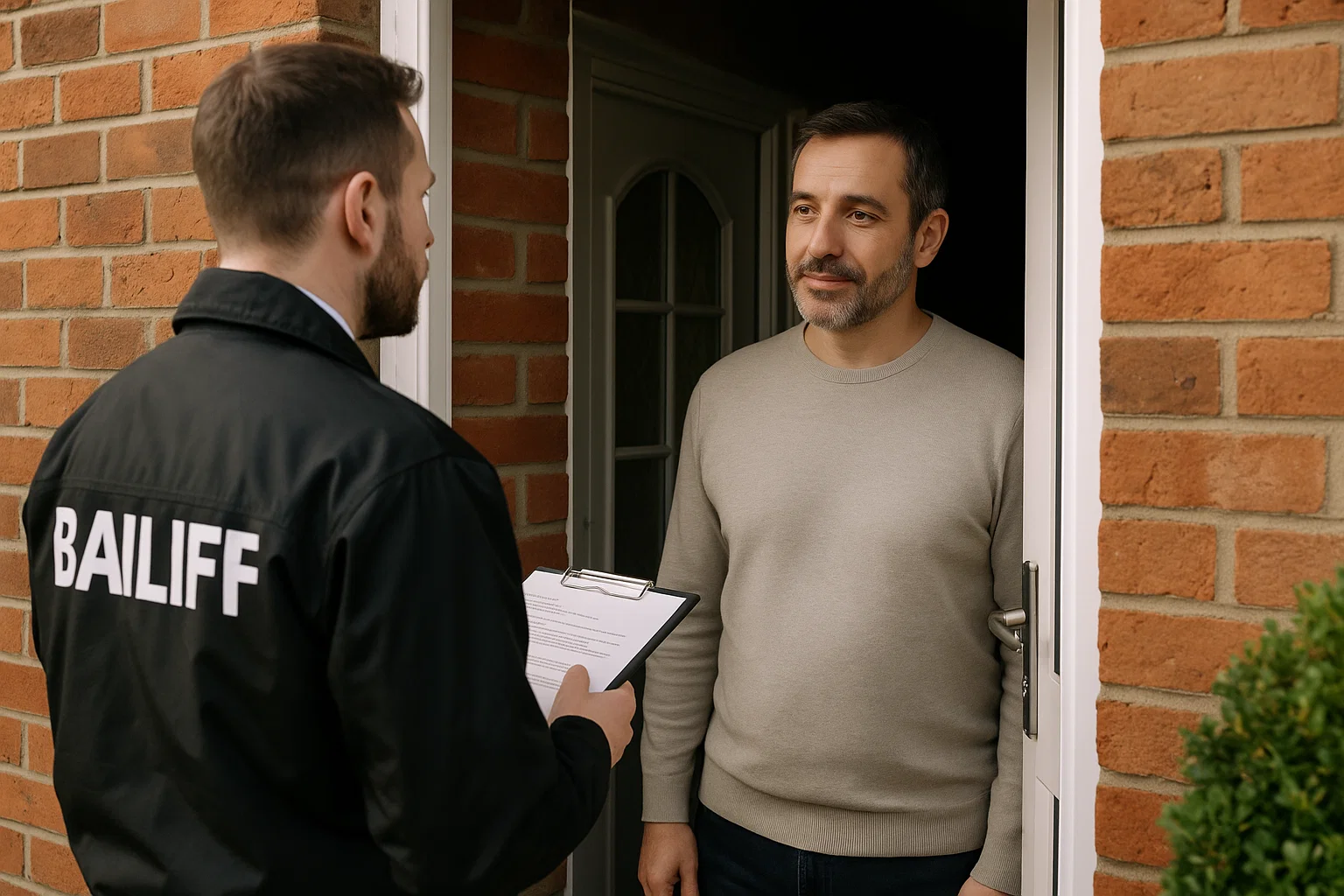
Can an IVA Stop Bailiffs?
If bailiffs attend before an IVA proposal or acceptance, the IVA won’t automatically stop them. Take swift action!
Contact an IP immediately so they can start preparing a proposal. Then, ask the creditor and enforcement agent to halt enforcement proceedings. Creditors will often agree to a short suspension of actions if they know of a possible IVA proposal.
Once your IVA is accepted, enforcement for included unsecured debts should stop. Bailiffs should not lawfully seize goods for debts covered by an accepted IVA because the creditor has agreed to the arrangement.
If bailiffs ignore the IVA and continue enforcement:
- Ask them to leave and give them proof of the accepted IVA.
- Object to the instructing creditor.
- Seek legal advice. If the action is for included debts, it is probably unlawful.
Remember, if you breach the IVA by missing payments or behaving uncooperatively, creditors can apply to terminate the IVA, following which they may resume enforcement.
Which Debts Are Protected by an IVA?
IVAs usually cover unsecured debts such as credit card debt, personal loans, overdrafts, store cards, and relevant CCJs.
The following debts are usually excluded from an IVA:
- Secured debts: Mortgages and car finance, unless otherwise agreed.
- Priority/statutory debts: Child maintenance, criminal fines, some tax liabilities, council tax arrears, student loans and benefit overpayment.
- Omitted debts: Any debt not listed in your IVA proposal may not be covered.
Enforcement for excluded debts can continue after the IVA acceptance.
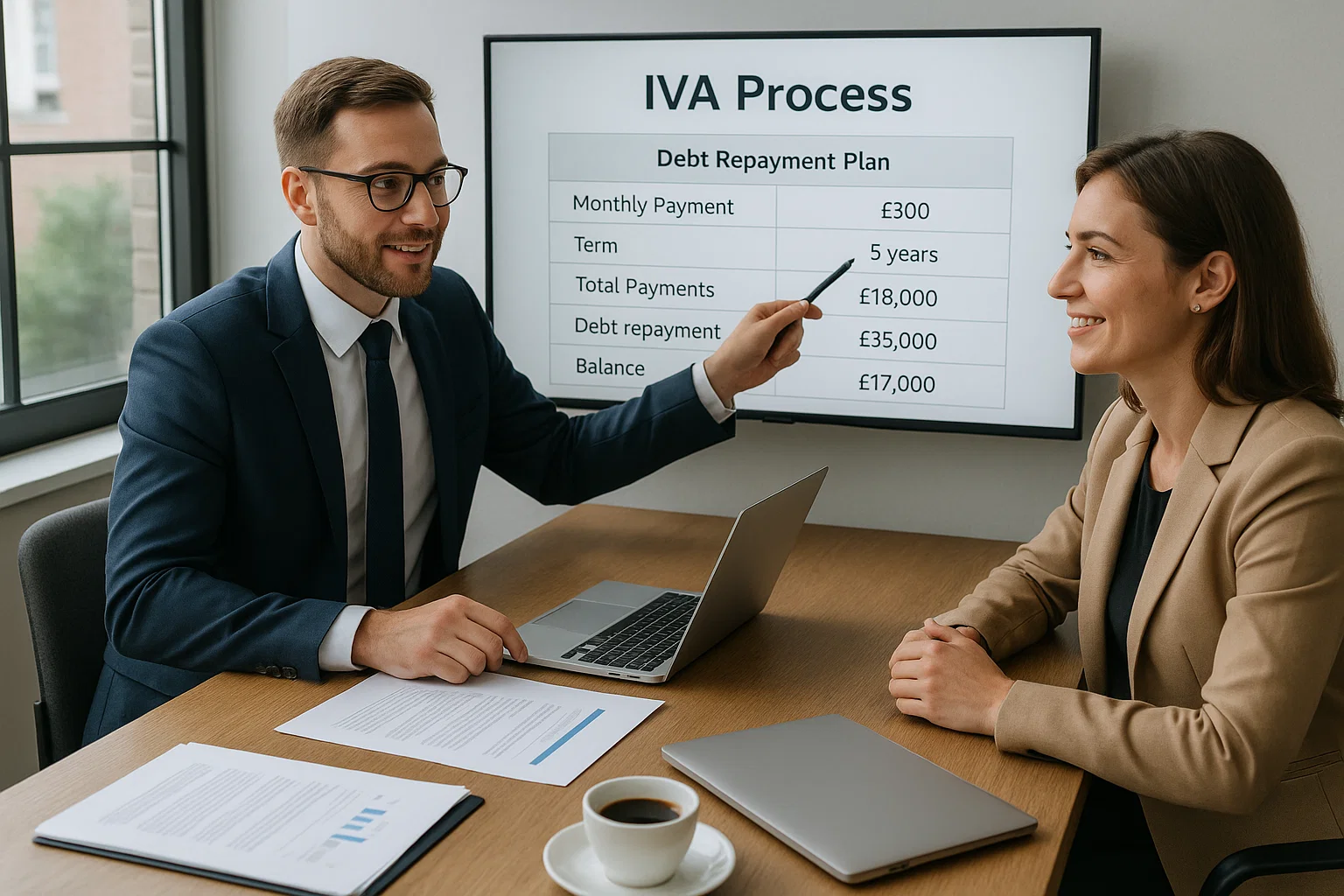
How an IVA Is Implemented to Prevent Enforcement
Once an IVA proposal is accepted by 75% of creditors by value, the IVA becomes a legally binding agreement for all parties to the contract.
Your IP notifies the creditors and, where necessary, the court. From that point, the IP will manage distributions and prevent further enforcement.
If there are live court proceedings, your IP can apply for a stay or an adjournment pending the IVA. Courts will often call an adjournment if the IVA looks realistic.
What to Do If You’re Facing Bailiffs
Immediately contact a licensed IP, who can prepare a proposal quickly and persuade creditors to pause.
If bailiffs are at your door:
- Ask to see identification and paperwork. Do not sign anything under pressure.
- Tell the bailiff you plan to apply for an IVA and ask them to leave or agree to a short delay while you get professional debt advice.
- Take the details of all debts, court documents, income, expenses and creditor contacts to the IP.
If a CCJ or warrant exists:
- Seek urgent debt advice. Your IP can negotiate a suspension or apply to the court for an adjournment while the IP prepares an IVA.
- Consider alternatives if an IVA is unrealistic. These may include a Debt Relief Order (DRO), bankruptcy, or informal debt repayment arrangements.
After engaging an IP:
Offer full disclosure. You’ll jeopardise the IVA if you fail to disclose debts or assets.
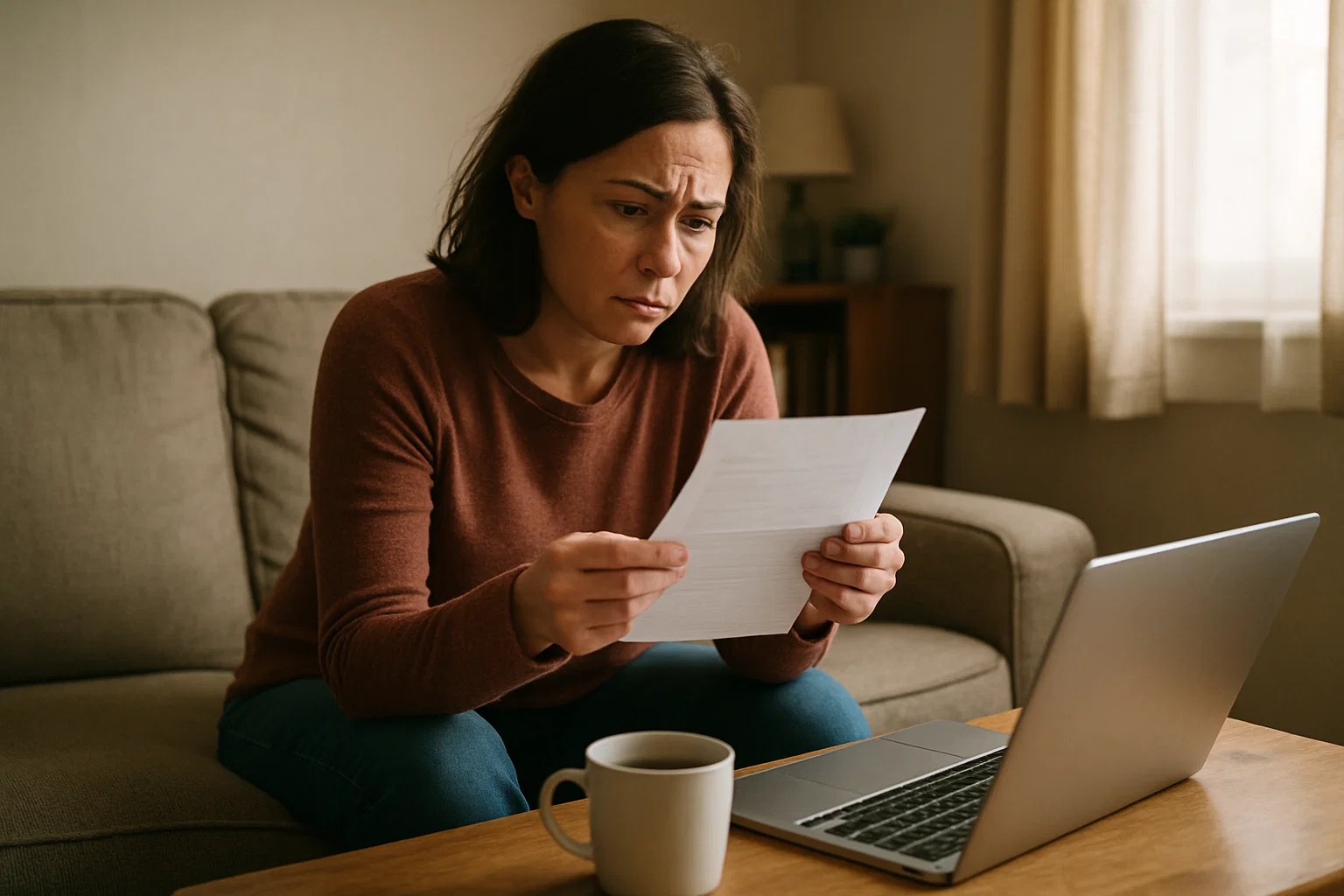
The Consequences of Missed IVA Payments or Breaches
The consequences of breaching an IVA agreement or missing payments are often severe:
Creditors can vote to terminate your IVA if you default unless the IP has negotiated a payment variation. If the agreement terminates, your protection comes to an end, and creditors regain their enforcement rights.
The IP will usually try to negotiate variations, like payment breaks or reduced payments, to avoid termination.
If the IVA fails:
Creditors may resume enforcement. Enforcement actions may include the use of bailiffs, garnishee orders, or further court proceedings.
Your credit record will show the failed IVA, and it will be more difficult and more expensive to negotiate credit in the future.
If you can’t afford payments:
Speak to your IP as soon as possible. You could vary the IVA or consider bankruptcy or a DRO instead, if you meet the criteria.
Special Situations
- HCEOs vs county court bailiffs: HCEOs have broader powers (including forced entry in some cases) when carrying out High Court writs. If enforcement has reached the High Court level, the IP must act swiftly to persuade the instructing creditor to halt the process.
- Charging orders and secured actions: If a creditor received a charging order over your property before the IVA was filed, the secured creditor’s rights remain. An IVA won’t remove a charge unless the secured creditor agrees.
- HM Revenue and Customs (HMRC) debts: HMRC can be part of an IVA but may be less willing to write off tax debt. They may accept a proposal if it gives a reasonable return, or they might pursue alternative enforcement or bankruptcy.
An IVA’s effectiveness in stopping enforcement relies on fast, clear communication between you, your IP, and your creditors. Honest disclosure and a realistic proposal increase the likelihood that creditors will pause while the IVA is being considered.

IVA Alternatives
You must understand your alternatives if your debts are such that you are struggling to meet your payment commitments each month. These are some of the debt solutions currently available:
- Debt Relief Order (DRO): A Debt Relief Order in the UK is meant for low-income, low-asset individuals. These instruments are less expensive, but they come with strict eligibility requirements and cover limited debt amounts.
- Bankruptcy: You’ll receive a relatively quick discharge of around 12 months, but bankruptcy has serious consequences. These include the loss of assets. You can also expect long-term credit impacts.
- Debt Management Plan (DMP): This is an informal arrangement with creditors to pay what you can afford. It offers no legal protection, and creditors and bailiffs can continue enforcement.
The best debt solution for you will depend on your debt levels, assets, income, and how much legal protection you need.
Finding An Insolvency Practitioner
If you need an IP, ensure that they are licensed and check their references.
There are several questions you should ask your IP, including:
- How quickly can you prepare and submit an IVA proposal?
- How will you communicate with creditors and bailiffs?
- Which debts must I include or leave out?
- What are your fees, and how are they applied?
- What happens if I miss a payment or my circumstances change?

The Protection No One Talks About
An IVA can offer powerful protection against legal action and bailiff enforcement. Still, it is not an instant stop, especially when legal or enforcement processes are already advanced. Your protection begins when creditors accept your IVA, and you comply with its terms. Fast action, full disclosure, and close cooperation with a licensed Insolvency Practitioner should persuade your creditors to pause enforcement.
If you’re facing bailiffs or court action, seek immediate financial help from an IP or specialist debt adviser, who can assist with your money problems. Contact My Debt Plan on 0161 464 0870, and find out how we can help you make the best choices and find credit solutions that work for you. Swift action can make all the difference between stopping and allowing enforcement to escalate.



